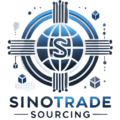Introduction

In today’s global marketplace, having strong and reliable supplier relationships is essential for businesses that depend on international sourcing. China, as the world’s largest manufacturing hub, plays a pivotal role in supply chains across a wide range of industries. At SinoTrade Sourcing, we understand that building long-term, mutually beneficial relationships with Chinese suppliers is key to successful sourcing. Whether you’re a small business or a large multinational, nurturing these connections can lead to better pricing, product quality, and smoother operations.
This guide will walk you through the steps necessary to establish and maintain long-term relationships with Chinese suppliers, helping you streamline your export sourcing strategy and ensure reliable supply chains.
Understand the Cultural Differences in Business Practices

Before diving into supplier partnerships, it’s essential to understand the cultural nuances that influence business interactions in China. Chinese business culture places a significant emphasis on building trust, known as Guanxi (关系). This concept reflects personal relationships and networks of mutual trust that are developed over time, and it plays a central role in Chinese business negotiations.
Key Points to Consider:
- Face (Mianzi, 面子): Giving and saving face is a crucial part of Chinese culture. Publicly honoring your supplier’s reputation and avoiding embarrassing situations can strengthen your relationship.
- Patience: Building long-term relationships with Chinese suppliers often takes time. Expect negotiations and discussions to take longer than they might with Western counterparts.
- Formalities: Meetings often start with formalities such as tea or small talk. It’s important to build rapport before diving into business discussions.
Choose the Right Supplier for Long-Term Partnerships
When selecting suppliers, it’s critical to evaluate their ability to meet your needs both now and in the future. This requires looking beyond cost and considering factors like quality, production capacity, communication skills, and reliability.
How to Identify the Right Supplier:
- Supplier Reputation: Verify their track record in the industry. Established suppliers are more likely to provide consistent quality and meet deadlines.
- Communication Skills: Choose a supplier that is responsive and easy to communicate with. Miscommunication can lead to costly mistakes, especially when dealing with international supply chains.
- Production Capabilities: Ensure the supplier can scale production as your business grows and has experience in producing goods similar to yours.
Establish Clear Communication and Expectations
Once you’ve chosen a supplier, clear communication is essential. Misunderstandings, especially when dealing with different languages and time zones, can quickly escalate into larger problems. To avoid this, you should define clear expectations from the start and maintain open communication throughout the partnership.
Best Practices for Communication:
- Written Agreements: Always confirm any verbal agreements or negotiations in writing. This ensures both parties have a clear understanding of terms such as pricing, production deadlines, and quality standards.
- Regular Updates: Schedule regular check-ins with your supplier. Whether it’s weekly calls or progress reports, frequent communication can prevent delays and help identify potential issues early.
- Transparency: Encourage transparency by being open about your business needs, challenges, and future goals. This fosters trust and enables your supplier to better align their services with your expectations.
Be Proactive with Quality Control
Ensuring consistent product quality is one of the most important aspects of maintaining a long-term supplier relationship. SinoTrade Sourcing advises clients to implement stringent quality control processes from the very beginning of the partnership to avoid costly production errors.
Quality Control Best Practices:
- Initial Samples: Before placing a large order, request product samples to ensure the supplier meets your quality expectations.
- On-Site Inspections: Regular on-site factory visits or third-party inspections can help maintain product quality over time.
- Clear Specifications: Provide detailed product specifications, including materials, measurements, and packaging requirements. Clarity from the start will minimize misunderstandings.
Use Technology to Streamline the Process
With the rapid advancement of technology, staying connected with Chinese suppliers is easier than ever. From communication tools to real-time order tracking, technology can help you maintain stronger relationships and streamline sourcing operations.
Key Tools to Enhance Supplier Relationships:
- WeChat: The most popular communication app in China, WeChat is widely used for business interactions. Having direct contact through this app can make communications faster and more informal.
- ERP Systems: Enterprise Resource Planning (ERP) software can help track orders, manage inventory, and automate communication with suppliers.
- Blockchain for Transparency: Some businesses are starting to use blockchain technology to ensure transparency in their supply chains, allowing suppliers and buyers to share real-time data securely.
Plan for the Long Term and Scale Together
Lastly, building a long-term partnership with your Chinese suppliers means planning for the future. As your business grows, your supplier should be able to grow with you. Investing time in nurturing these relationships will pay off in the long run with consistent quality, better pricing, and more reliable production.
How to Plan for Long-Term Success:
- Scale Gradually: Avoid overwhelming your supplier with massive orders upfront. Build trust with smaller, manageable orders before scaling up.
- Forecasting: Provide suppliers with long-term forecasts and plans so they can allocate resources and manage production accordingly.
- Collaborate on Innovation: Encourage your suppliers to innovate and improve their processes. This could include upgrading machinery, implementing new production techniques, or sourcing better raw materials.
Conclusion: Strengthening Supplier Relationships with SinoTrade Sourcing
Building and maintaining strong, long-term relationships with Chinese suppliers is essential for any business looking to source products from China. At SinoTrade Sourcing, we specialize in helping companies navigate the complexities of Chinese supplier partnerships, ensuring smooth communication, consistent quality, and mutual trust.
Whether you’re just starting your sourcing journey or looking to improve existing relationships, our expertise can guide you through every step of the process, from supplier selection to quality control and long-term scaling. Ready to take your sourcing strategy to the next level? Contact SinoTrade Sourcing today and let’s build successful partnerships that last.



